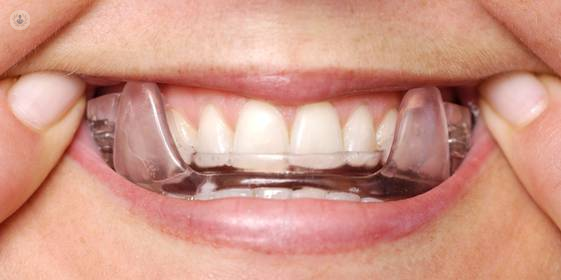

What is dental sleep medicine?
Dental sleep medicine is an area of special interest within dentistry where certified dentists are trained to use oral appliance therapy (OAT) to treat sleep disordered breathing (SDB). This includes the treatment of snoring and obstructive sleep apnoea (OSA). Dentists work alongside a team of medical sleep specialists and other healthcare professionals in order to optimise treatment options for the individual patient. Dentists can be the first contact for a patient seeking help for snoring. Included in this area of special interest is Sleep Bruxism (SB) or nighttime grinding of teeth, temporomandibular joint dysfunction (TMD) and craniofacial pain (CFP).
How do oral appliances work?
Gold standard treatment for SDB is Continuous Positive Airway Pressure (CPAP), which is a face or nasal mask connected to a pump that produces a positive flow of air to keep the airway open. A high percentage of patients find it difficult to tolerate or comply with this therapy hence custom-made oral devices are an alternative treatment option for them. These oral devices are the treatment of choice for snorers and mild apnoeics in any case. A certified dentist fits the patient with an intra-oral device, or mandibular repositioning device (MRD), over the teeth. It pulls the lower jaw forward to create additional room at the back of the throat for the tongue and loose soft tissue, which usually causes airway obstructions and stops the patient from breathing normally.

How do I get diagnosed with obstructive sleep apnoea?
Diagnosis of OSA can be made by a medical professional only. Certified dentists can screen and assess in order to establish risk and refer on if required for formal diagnosis. If a patient thinks that they have OSA they can visit their dentist or GP and appropriate referrals will be made.
The sleep specialists at the centre will arrange for the patient to be assessed with either an overnight sleep study in a hospital or give the patient equipment, including a breathing sensor, heart rate sensors and oxygen sensor, to monitor their sleep at home. This will be useful in reaching a definitive diagnosis.
